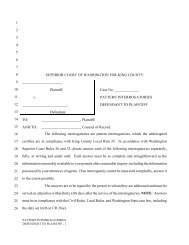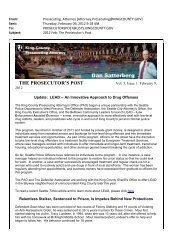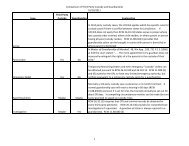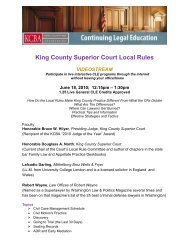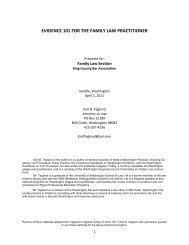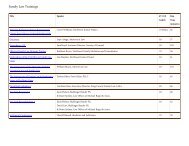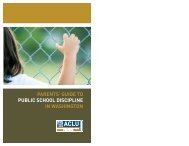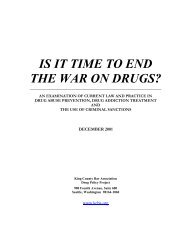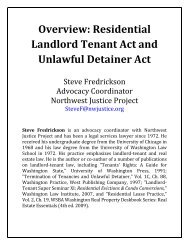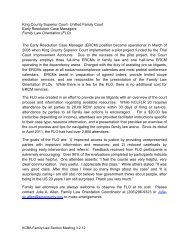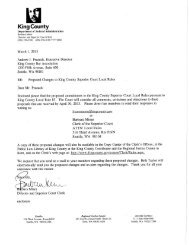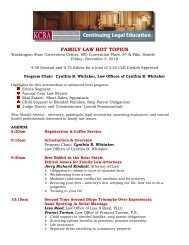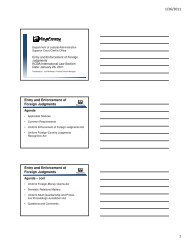Effective Drug Control: Toward A New Legal Framework
Effective Drug Control: Toward A New Legal Framework
Effective Drug Control: Toward A New Legal Framework
You also want an ePaper? Increase the reach of your titles
YUMPU automatically turns print PDFs into web optimized ePapers that Google loves.
As with any form of prohibition, a drug control policy that restricts young persons<br />
from possessing or using psychoactive substances should be limited to the reduction of<br />
actual harm, as balanced against the often dangerous conditions and counterproductive<br />
effects brought about by prohibition itself. For example, it is worth noting that, in our<br />
society, young persons are permitted, and often encouraged to use certain psychoactive<br />
drugs, such as caffeine and sugar. These substances have been scientifically proven to<br />
have deleterious effects on children, but the negative effect of prohibiting their<br />
consumption would be viewed as too great to justify prohibition. 596<br />
2) Should young persons be criminally punished for possessing and<br />
consuming psychoactive substances?<br />
The legal prohibition of young persons’ possession and use of psychoactive drugs<br />
justifies a state sanction for such possession and use. The law should authorize the<br />
seizure of psychoactive drugs found in young persons’ possession, but the state sanction<br />
need not be a criminal sanction.<br />
Voluminous literature supports the notion that criminal punishment for the<br />
possession and use of drugs, whether for adults or children, is counterproductive and<br />
inappropriate and has brought about severe societal consequences. 597 Criminal<br />
punishment of drug possession and use has not resulted in decreased substance abuse<br />
among young persons; in fact, more young persons are now experimenting with more<br />
dangerous psychoactive substances, and at even younger ages. 598<br />
Possession and use of psychoactive drugs by young persons should not be subject<br />
to criminal punishment. However, any young person who, while under the influence of a<br />
prohibited psychoactive substance, causes harm to other persons or to property, should be<br />
held accountable under current laws prohibiting those acts. In such cases, acts causing<br />
harm to others and to property are the trigger for the criminal sanction, not the actor’s use<br />
of drugs nor the actor’s intoxication.<br />
Any state response to drug use by young persons should directly address the<br />
underlying causes of the young person’s drug use. A family-oriented and communityoriented<br />
approach, stressing the young person’s rehabilitation and restoration, would be<br />
most appropriate and most effective. 599 A reasonable policy, in the case of a young<br />
person found possessing or using drugs, would be a referral to the appropriate local or<br />
state agency for evaluation of the young person’s needs and provision of services and<br />
assistance to meet those needs. <strong>Drug</strong> use by young persons should be addressed using<br />
sound, evidence-based social work practices, not through criminal punishment and<br />
stigmatization. 600<br />
The remedial measures used to address a young person’s psychoactive drug use<br />
should depend on each particular situation and should directly address the causes, the<br />
degree and the negative effects of the drug use, not merely the drug use per se. The use<br />
of drug testing, for instance, may be useful as a guide to clinical intervention but drug test<br />
results should not be used as proof of guilt or innocence or as justification for<br />
punishment. Recent evidence gathered from surveying over 75,000 American school<br />
children persuasively suggests that drug testing of young persons in schools, for instance,



